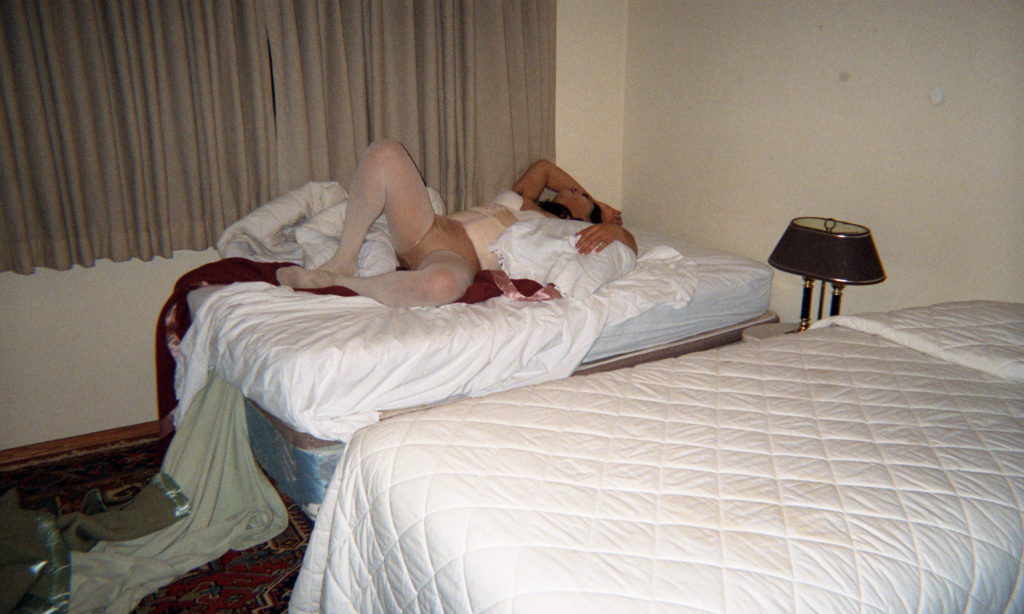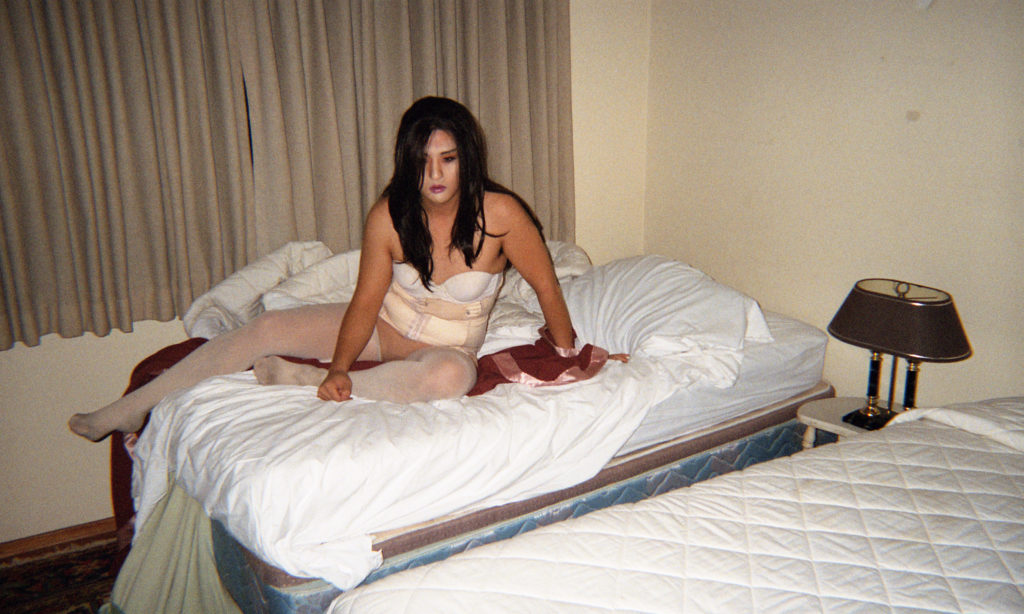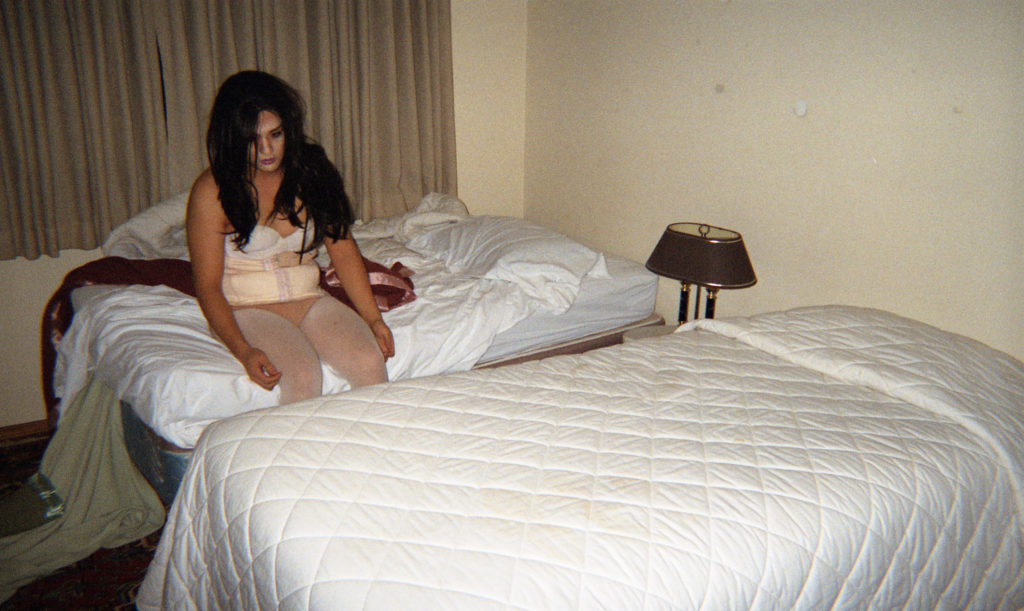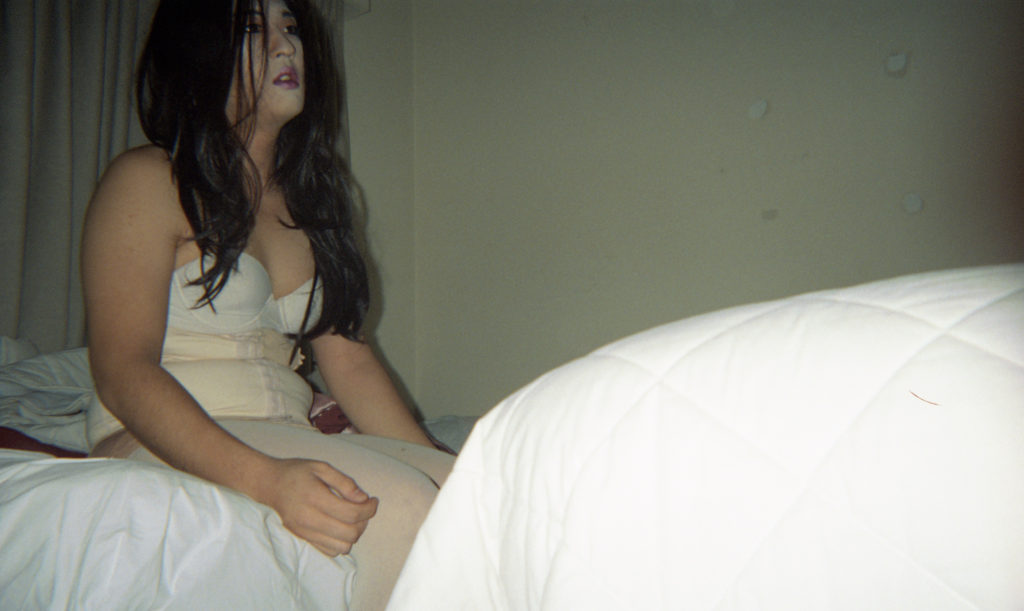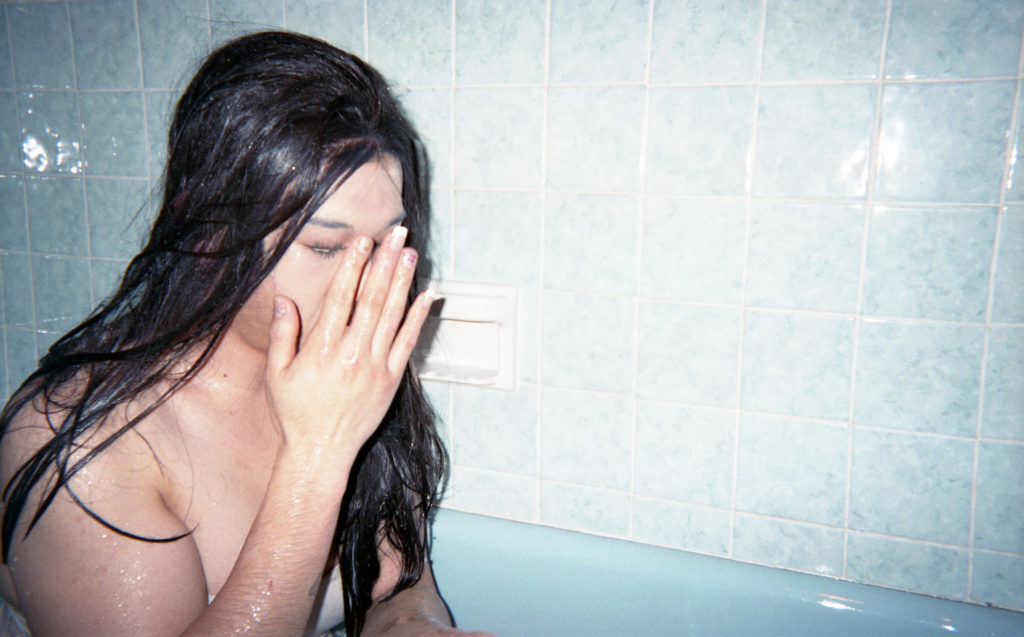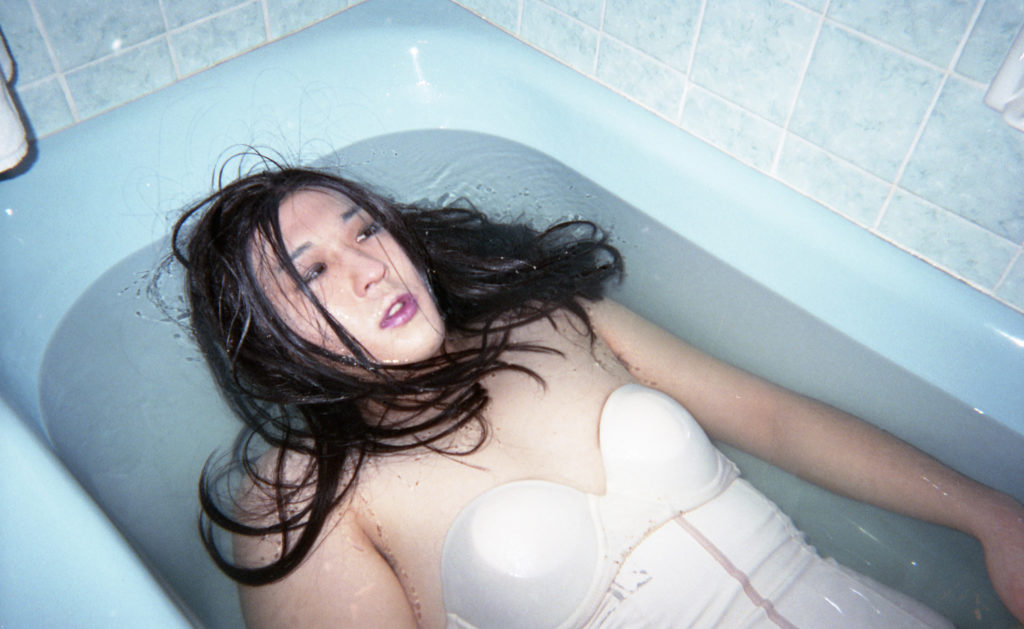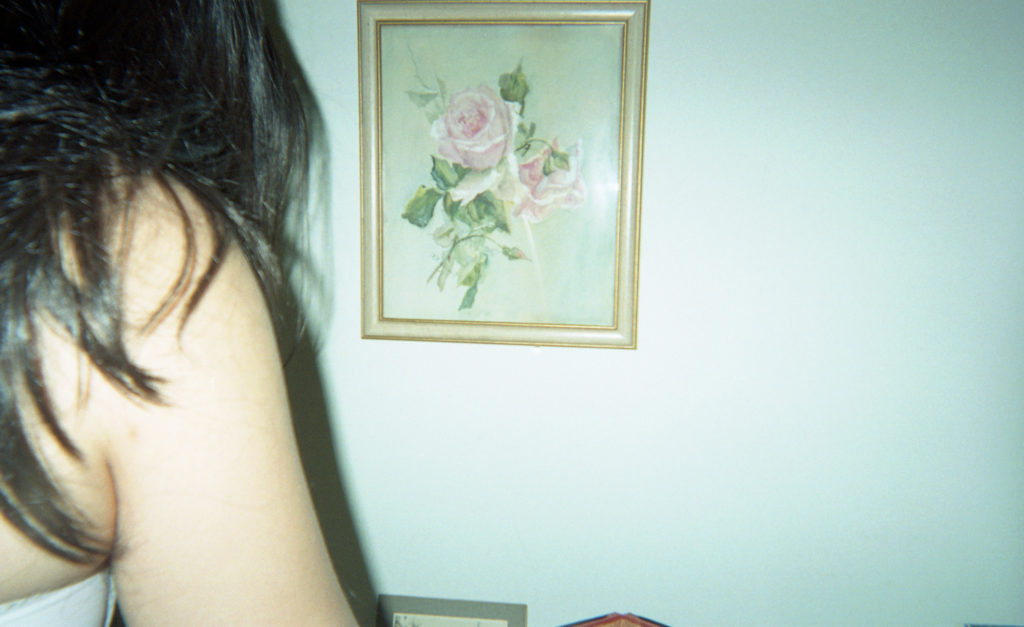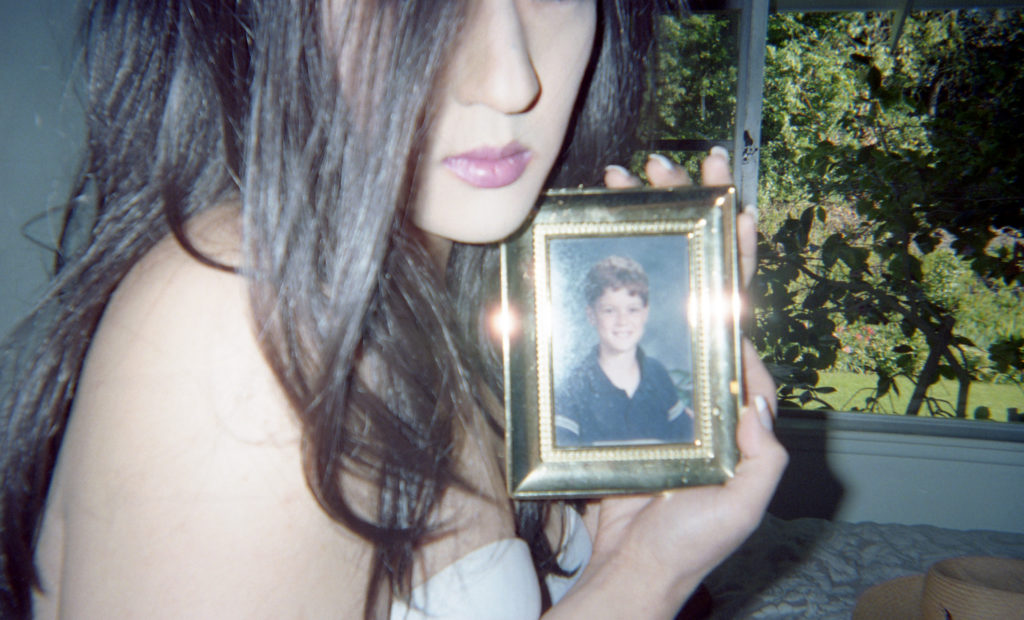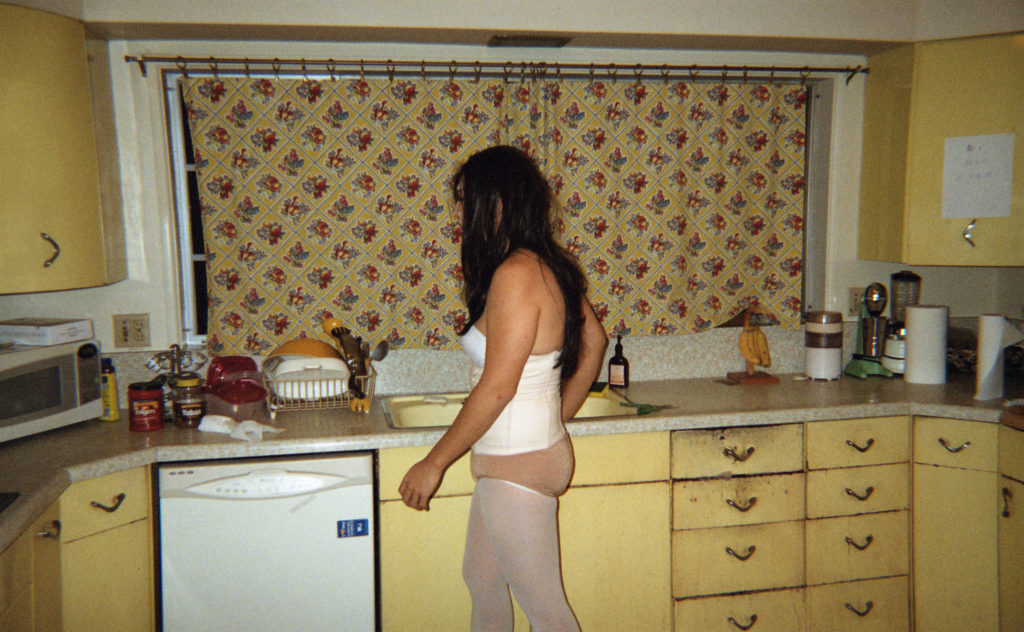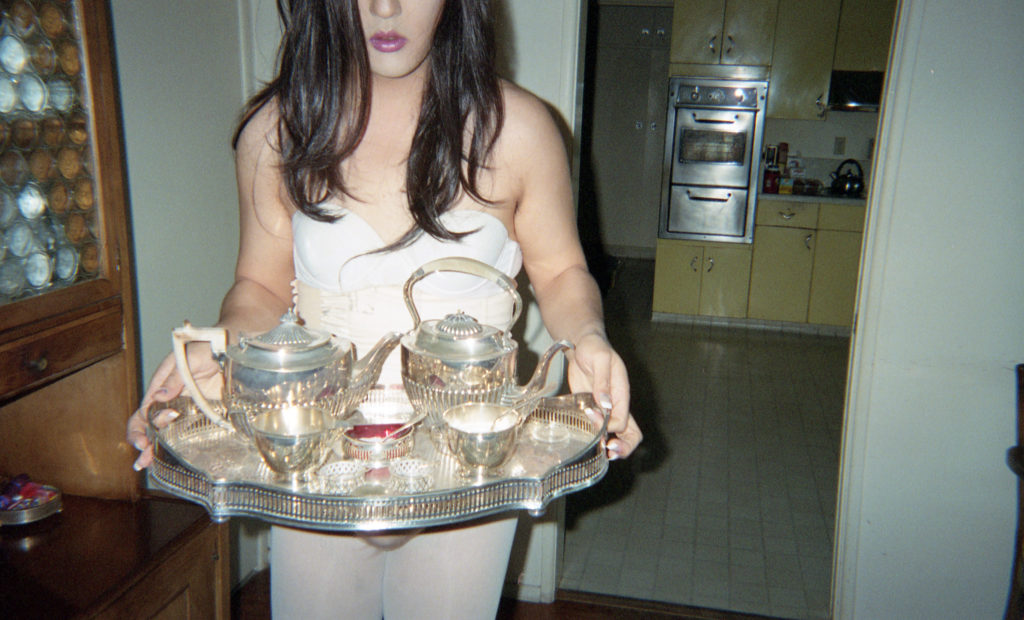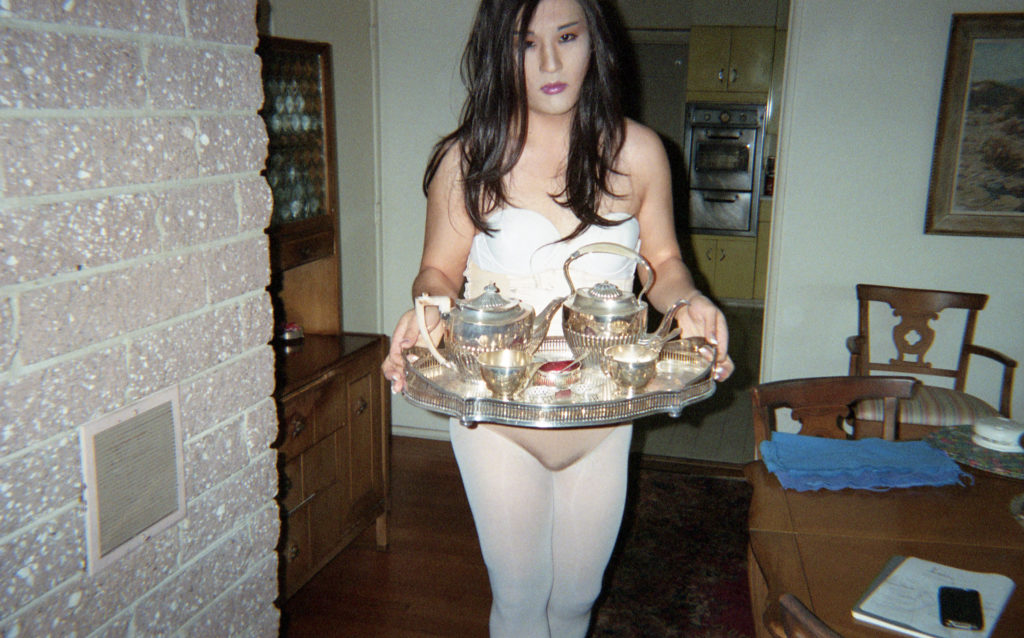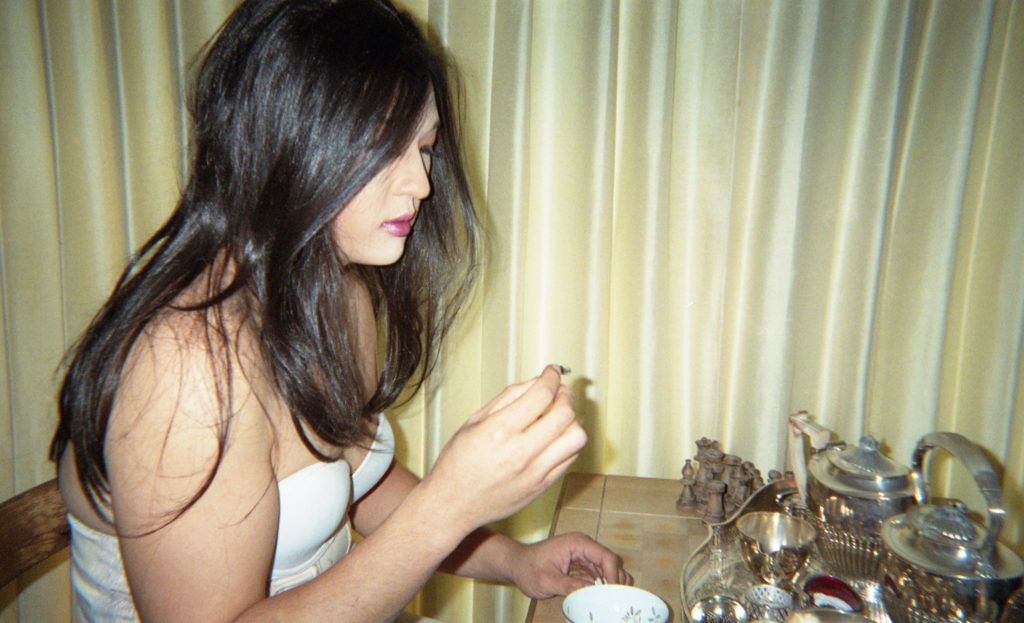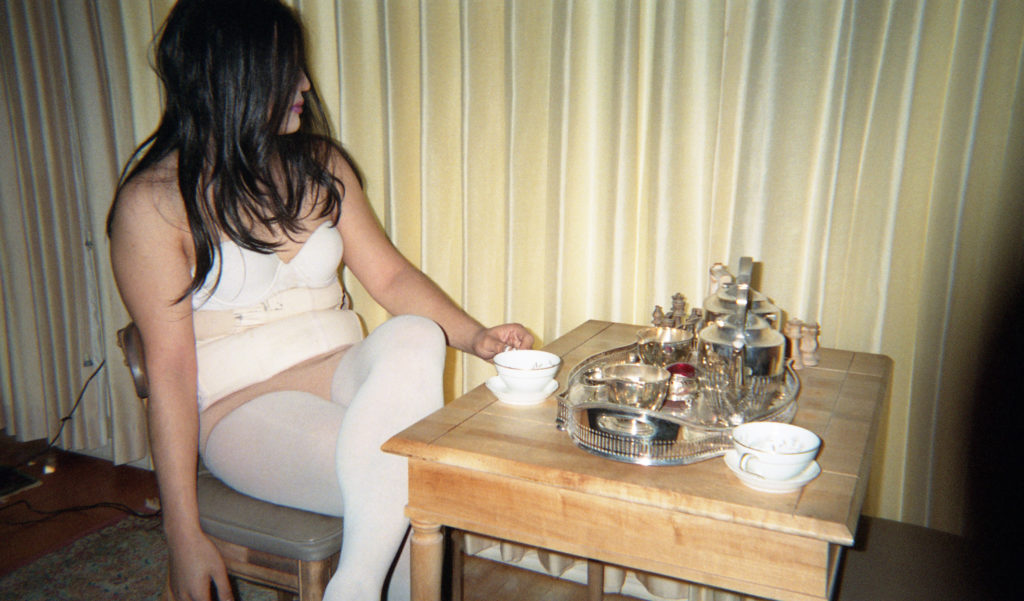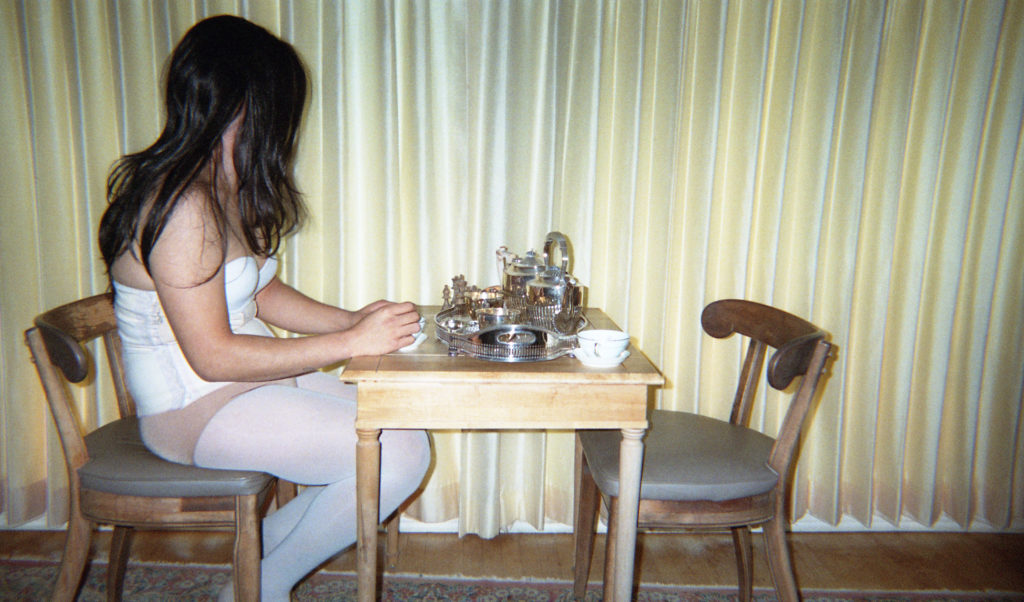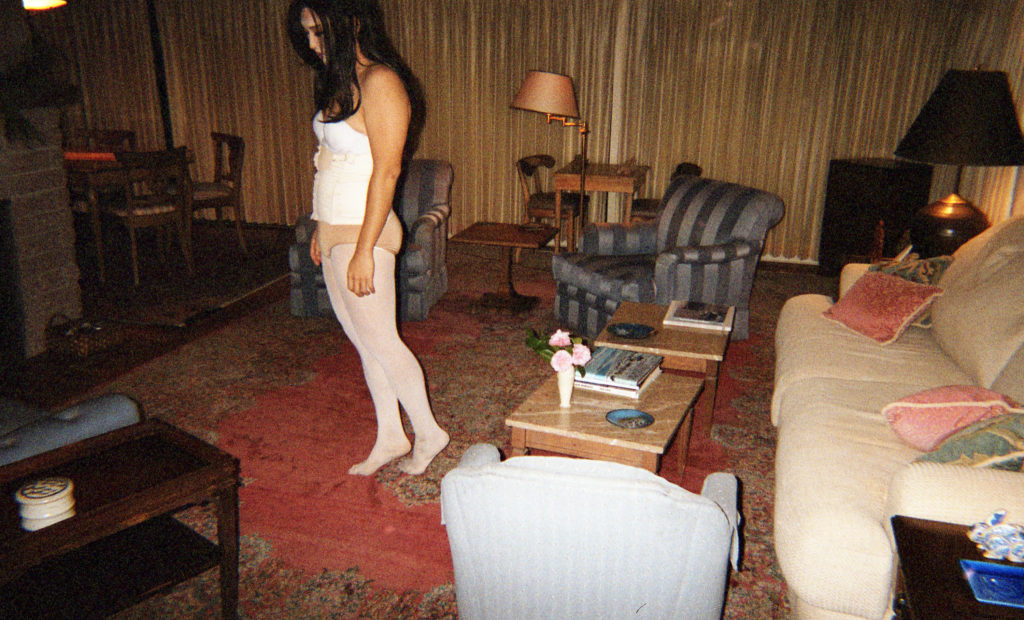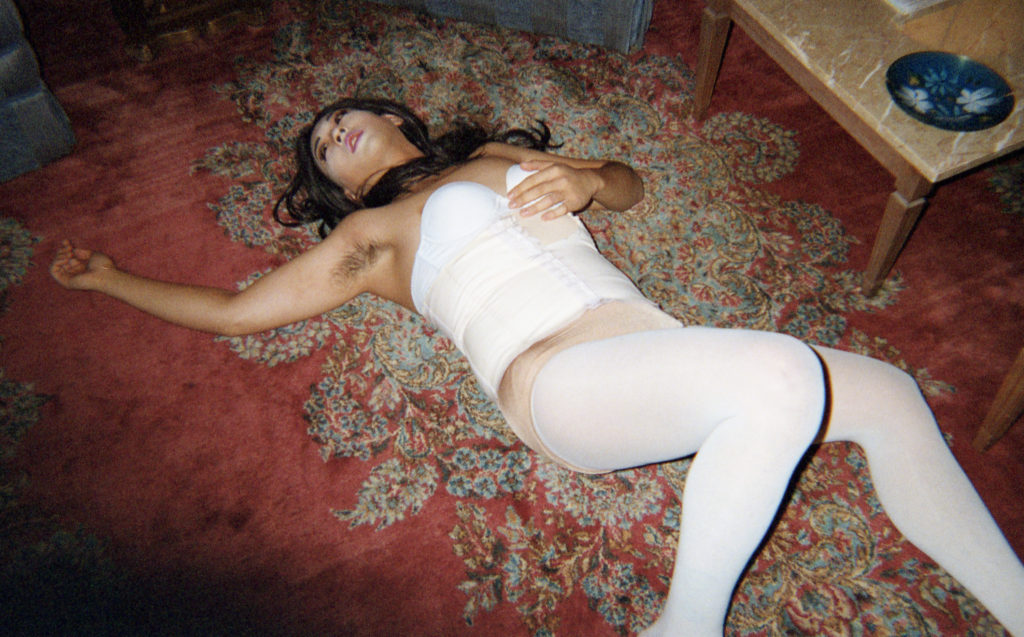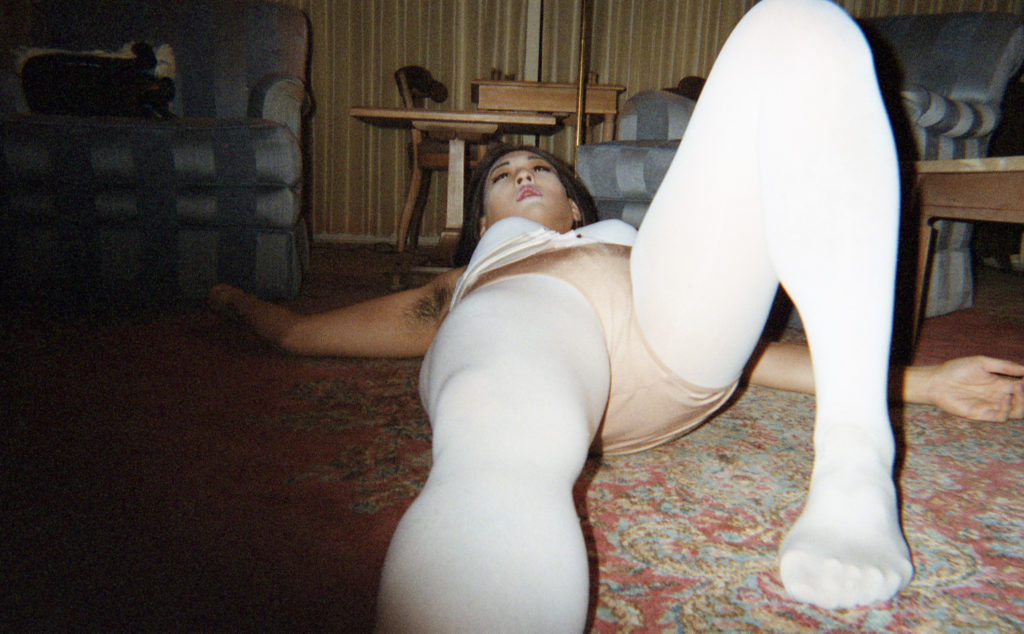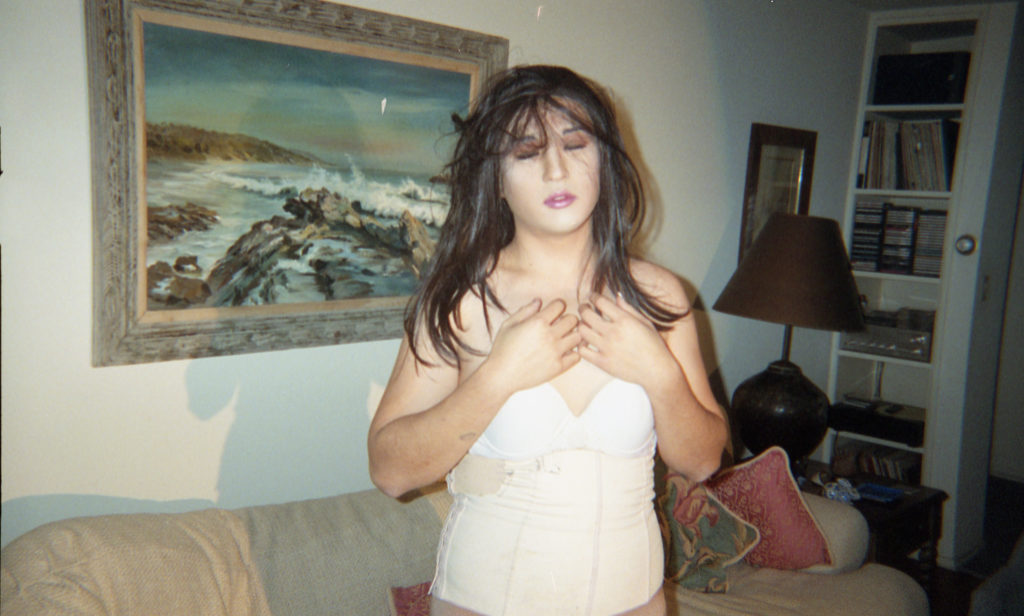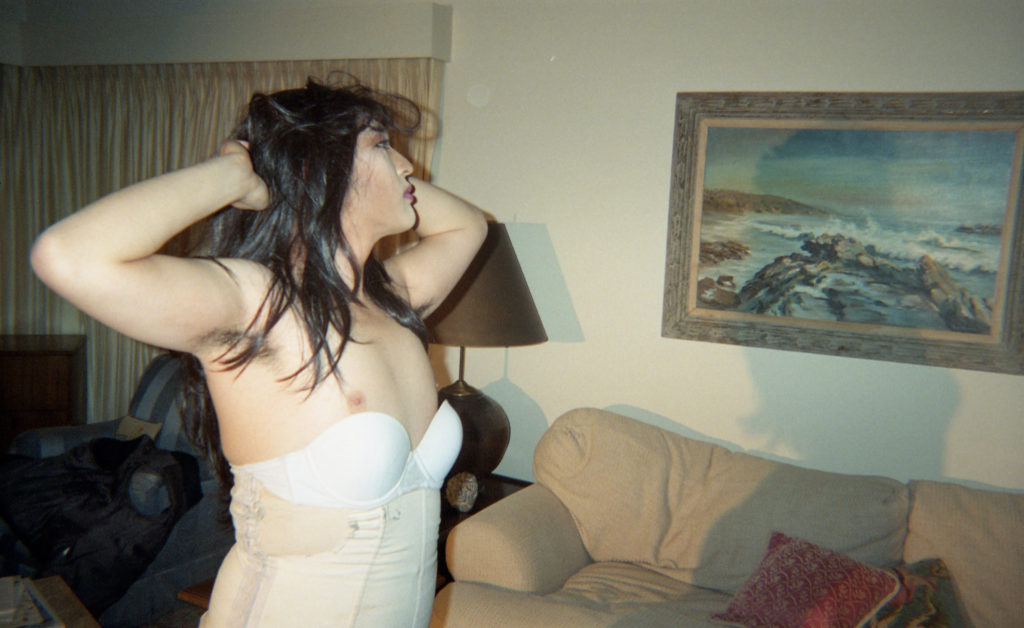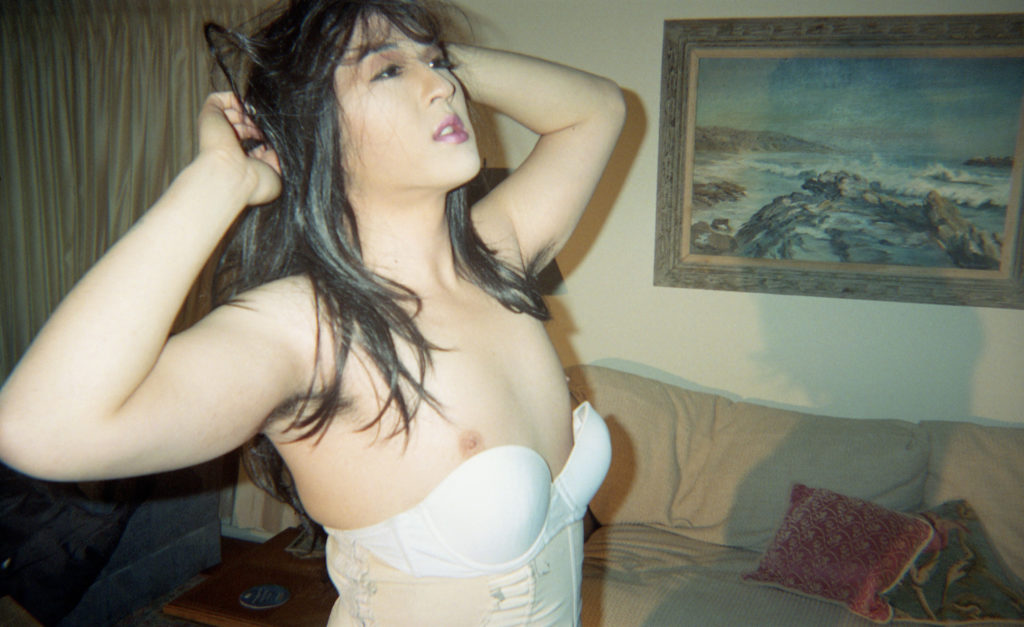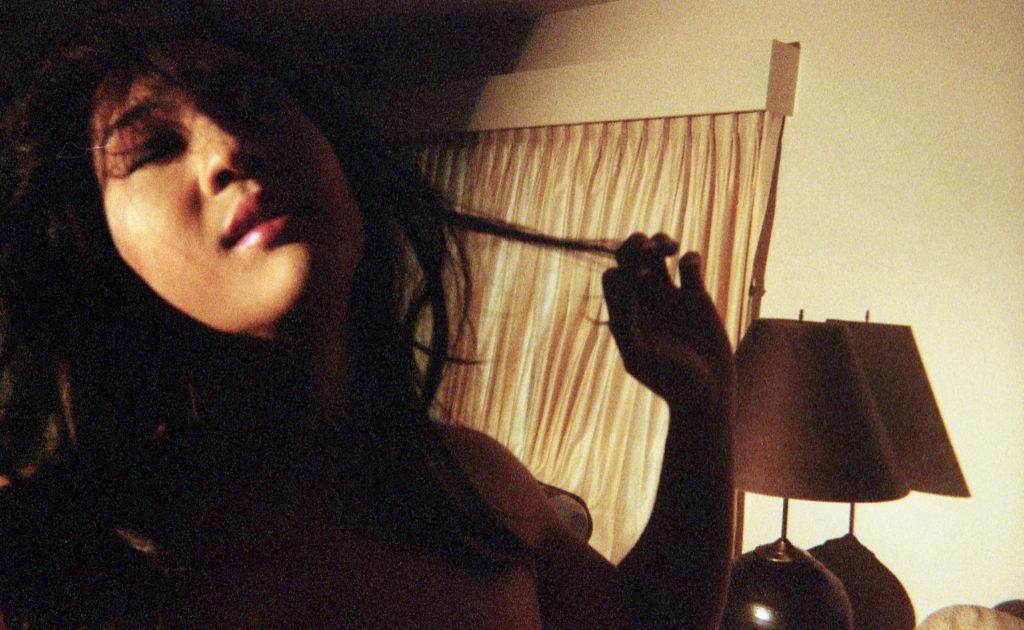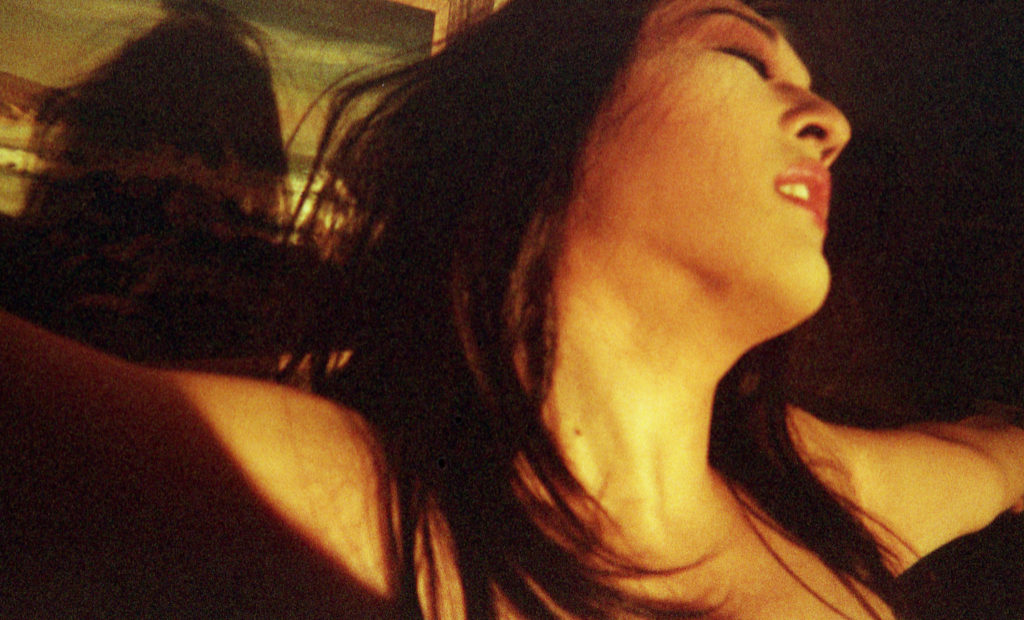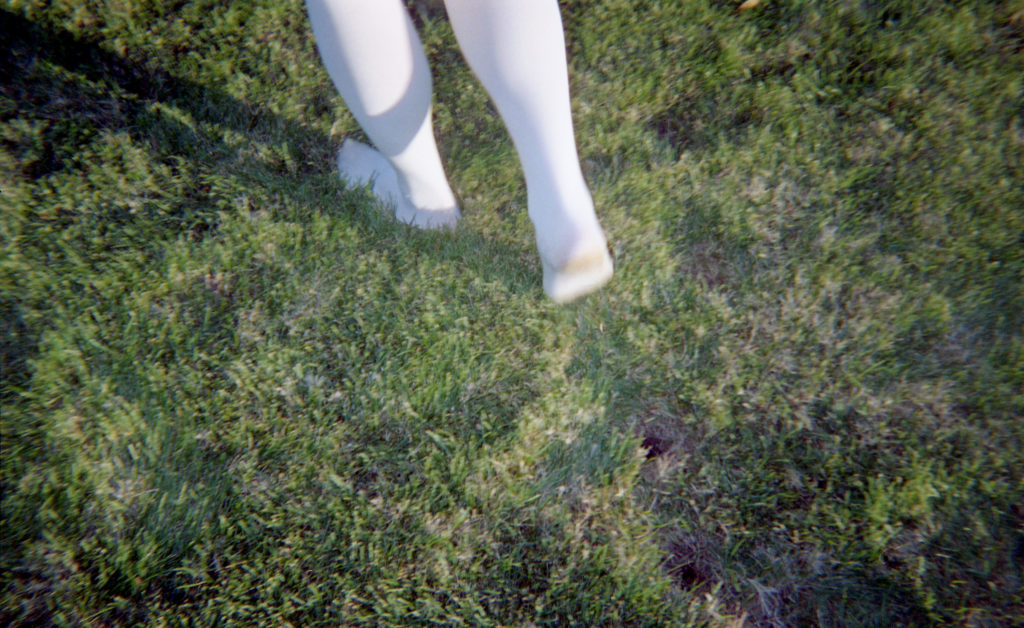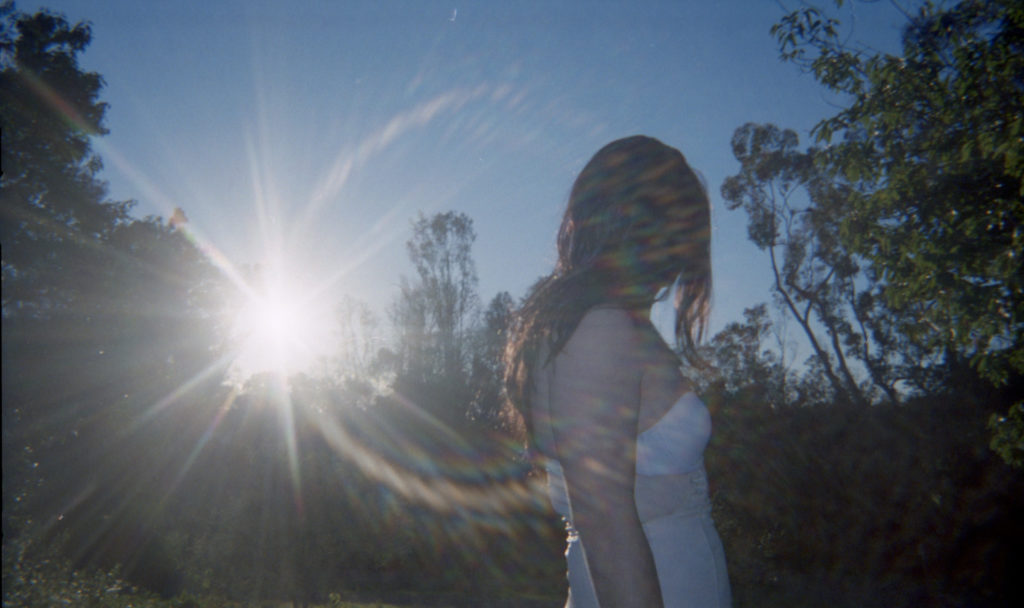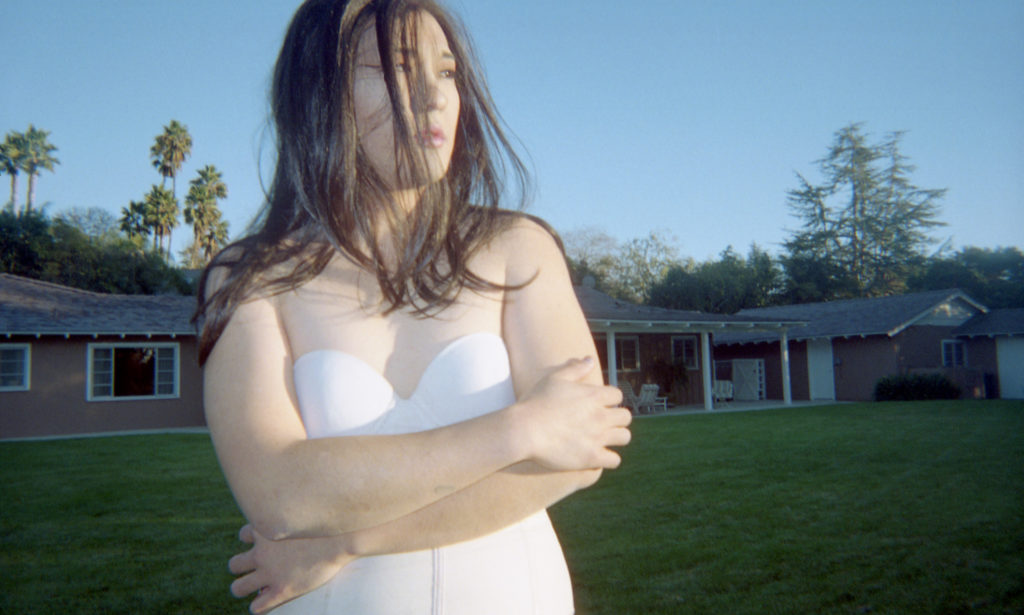Xina Xurner

For Stoking The Flame the duo comprising Xina Xurner, Young Joon Kwak and Marvin Astorga sits down with Human Resources’ John Tain to chat on the birth of their band, the dazzle of being among the crowd in the club, and promise of blurring and getting lost in the club’s crowd in the future. Alongside this interview Xina Xurner crafted a mix featuring Los Angeles’s very own SAN CHA, SISTER MANTOS, and Elliot Reed, as well as the debut of a new track from Astorga’s solo project Tzotzona, and a photo essay by Young Joon Kwak in collaboration with Christopher Richmond.
ROMY – Normal Day
RIND – Throw Your Arms Up
RESTLUST – Smooth Chola
SAN CHA – Cosmic Ways
LAUREN BOUSFIELD – Another World Is Possible-Presented By US Bank
BIG DEBBIE FEAT. CIRIZA – Hekua Oya
SISTER MANTOS – Quemame (Xina Xurner Hermy remix)
BEAST NEST – Sleepy Bitch
ELLIOT REED – Phone
AhMerAhSu – Meg Ryan
ANNA LUISA & SISTER MANTOS – Ulit Ulit
XINA XURNER – Under The
ADEE ROBERSON & JULIUS SMACK- Thought I Wanted To
This interview was conducted in December 2020 by John Tain.
John Tain: How did you two get into making music together? The first time I saw you was in 2012…
Marvin Astorga: And we started just a year before, in 2011. Well, we had been talking from 2010 like,” Oh, we should do music together.”
Young Joon Kwak: Yeah. Our first performance came about when I was invited to do a drag lipsync performance at a release party for a cookbook made by the folks at ACRE (Artist Cooperative Residency and Exhibitions) in Chicago in 2011, but I was like, “Oh fuck that. I want to sing my own songs.”
M: And I was used to helping you with your drag performances already, like throwing a giant boulder made of cardboard onto you from above the stage during “Total Eclipse of the Heart.”
Y: Yeah, I was just sick and tired of lip synching to pop songs that longed for the love of a man or something like that. I just wanted to speak with more truth and vulnerability about the complexity of the trauma, rage, ridiculousness, hilarity, joy, violence, all things not pretty in navigating my relationship to queerness, gender, and identity at the time. We came up with two songs for the performance, “We Are One” and “Sweat,” just a few days before the performance, and I had a piece of cardboard that I had scrawled lyrics on to.
M: Like a clipboard.
Y: Yeah, I remember holding it in front of my face during the performance as I was singing into this really shitty mic hooked up to a vocal fx pedal I didn’t know how to use that made me sound like a high-pitched chipmunk baby. I was so nervous during the performance, my ankles were shaking in 6 inch heels and my hands were shaking as I’m holding this clipboard in front of my face while the rest of my body is frozen stiff, and my voice was cracking and trembling all over the place while singing these really new and personal lyrics during the first part of “We Are One,” which starts off like a ballad before I start screaming and thrashing about this feeling of being split, falling apart, before coming back together, and you know, we are one. It–I was so awkward!
M: Yeah.
Y: EJ [Hill] was sitting in the front row of the audience, everybody was sitting on the floor, and I remember seeing him looking so intensely at me as I was being a total freak. And he was the first person to get up off the floor and start dancing the moment “We Are One” got more dancey/thrashy. It made me realize that he wasn’t just a passive observer of a shipwreck or something, but there was some sort of identification and investment on his part that got him moving along with me, and then our friend Lily starts dancing, and it just continually builds, and then I’m able to have more fun being a freak and dancing with others. I am so intimately affected by audience members, not the other way around. Which is so much about what Xina Xurner is about. I want you to affect me, for us to affect each other. So yeah, EJ played a big part in the beginning of Xina Xurner. Isn’t that funny and weird?
J: That’s wild. Did you know each other then?
Y: More as acquaintances… You know, the Chicago art world is pretty small.
J: Wow, that’s kind of amazing. But it totally makes sense that your first performance was for a cookbook release because I think I first experienced the Xina Xurner magic after you had already moved to LA for grad school in 2012. It was during a performance in the kitchen area of the USC grad building. (Laughter)
Y: I love it!
J: But, I have to say that in general I don’t like going to concerts. There’s all this stuff you have to do to actually go see a concert. Like if it’s a big concert, you have to deal with crowds and traffic etc. Then, most of the time, the live music experience itself doesn’t end up being all that interesting. There’s always exceptions, but basically it’s like maybe the equipment doesn’t work out so well, there’s reverb, there’s all kinds of problems, and people are just working through all the issues. That’s definitely the case with the typical Xina Xurner show, there’s always tech issues, like always , right?
Y: Haha, but it’s about getting through it together.
J: Yeah.
M: It’s not a complete show without technical difficulties.
J: Yeah, like the speakers will blow, the mic doesn’t work, or something doesn’t happen. The Xina Xurner magic is less about everything working great and the musicians and the singer really giving it their all. It’s a different kind of thing where things are totally awkward: Young Joon usually will lose an eyelash or two somewhere along the performance, like it’ll be hanging halfway down your eye, or the sweat is just making the makeup run. But, in spite of all of that there’s this connection that happens with the audience. You totally encourage that. You don’t stay on the stage. Most of the time you’re not even playing on a stage, you are in a space where everyone’s on the same level. Like literally on the same level, and you go out into the crowd. That’s where the magic happens.
But I want to ask Marvin a question: what was it that made you suggest that it was something that you should do together? ’Cause presumably you were already making music too?
M: Was I?
Y: Yeah, you were performing as Brown Lazer!
M: Oh, yeah! In a sense I had always been in bands in college and while I was in Chicago. I was in a band with my friend Lily called Subprime Mortgage during the ’08 recession and I was fronting my own band with my boss at a cafe, her name is Jenny Urban and our friend Scott Free who’s a Chicago queer music organizing maven and an activist since the AIDS era. So he’s this big older giant leather daddy and a musician. I would play in his band, and he would help me get gigs with my band that was called Brown Lazer. But that was more like comedy rock or comedy punk maybe.
J: What do you mean by comedy punk?
M: Like I would do a song that was like a Ramones impression or a song that was a Johnny Cash Impression, and the songs were funny, I was trying to be funny.
Y: They were kind of funny and sad.
M: Yeah.
Y: In a way that was really sweet and inspiring.
M: Young came to all the shows.
Y: Yeah, before I was the lead singer of Xina Xurner I was Brown Lazer’s biggest groupie.
M: Around that time I was already feeling an itch to make electronic music because I had been going out to this party called Chances Dances a lot which was a monthly queer party around Chicago. So I was thinking I wanted to make dance music, and then we started talking about making dance music together. Because the feeling of dancing at Chances Dances felt so important. The feeling of queers dancing together and moving their bodies in the same space. We felt like it was something political, in a way.
J: It sounds like it was definitely community building or a community gathering, right.
Both: Yeah.
M: But so I felt we could achieve that more with dance music.
Y: Yeah, you get a fucking bunch of of people together who maybe are from marginalized groups: queer, POC, poor people, gender weirdos, social mutants or whatever, and the expectation is for them to be mopy and sad or whatever. But for us to all be sweating and jumping and dancing around and feeling happy (and sad) but feeling together and having fun, collectively getting all dolled up and gorgeous and truly living, thriving in the moment…that is political!
M: Yeah.
Y: Yeah, not giving in to that expectation to just accept our sad fate or something. It’s about creating a sense of agency for a community that’s a sort of grass-roots world-making.
J: What was the music at Chances Dances like?
Y: It was everything, it was arty, trashy, pop, goth, punk, weird…
M: They were a collective of DJ’s, and they each had their own style and sometimes it was a little poppier, or a little gothier, or whatever.
Y: And there were a lot of queers and artists that would convene at these parties too and so much of Xina Xurner…It’s like we perform for each other in this community too, of other artists who are also imagining different anti-normative worlds. In that way, it’s also political because we’re doing it for each other, inspiring each other, mobilizing each other. Our friend Rotten Milk early on said what we do is make weirdos feel better about being weirdos in the world.
J: Okay, so you were saying that Xina Xurner got started in Chicago and pretty soon after you started the band, you moved to LA. I feel in LA it’s been this kind of communal experience, right? So many people have come into or collaborated with Xina Xurner. It’s this great cross section of underground musicians and artists who have put in appearances and worked with you, like San Cha, or Sarah Gail…
Y: and Anna Luisa Petrisko, White Boy Scream (Micaela Tobin), Sister Mantos, and so many of the other performers that we’d regularly play shows with, and just like our community that’s around us that always comes out and helps make the performances.
M: Yeah, it’s very inspiring how dedicated people are. And they’re always doing something fresh.
Y: And that is what Mutant Salon grew out of.
J: So now that live performances have not been really possible, have you been thinking about ways to work around that? What is Xina Xurner doing these days, I guess?
Y: Well Xina’s getting her beauty rest… I mean, it’s not just us that’s on pause — it’s the whole fucking world. Our conception of time has changed in a way where we’ve found ourselves having to take a pause from aspects of our everyday lives, from playing another show, and the expectation to continually produce something new, because it’s not possible, but it doesn’t mean that we stop growing during this time.
M: And especially with the way that we write songs. I feel like there’s a lot of testing at live shows, sonically. We will workshop lyrics and how they feel. Find out what didn’t really work, or what got people interested.
Y: Yeah, to see what resonates with others. But we’ve got some exciting new things coming up and this time has given Marvin a chance to do some new things.
M: Yeah, I have had a lot more studio time so I’ve been working on an EP of songs that are coming from a Mexican futurist angle. It incorporates Mexican musical forms I grew up with, with electronic music I am currently inspired by, synthesizing elements of cumbia, house, techno, technobanda, acid, and quebradita along with pre-columbian rhythms, sampling, and inspiration from telenovelas and TV ads I grew up watching in the 90s.
J: Wow!
M: TZOTZONA is the working name of the project. It’s a Nahuatl word that means a whole lot of different things including to bang a drum continuously, to play an organ, to punch somebody, to hit yourself on a door or a wall…
J: –Like literally headbanging.
M: Yeah but also like, panning for gold. But yeah, obviously I was drawn to the head banging. I’m trying to get these wrapped up to release before next spring. In addition to that, we’ve got some new Xina songs we’re working on and want to release before the fall. And then hopefully we will get to play them live in a room full of sweaty people in the near future?
Y: John, can you just imagine how fucking glorious it will be once we’re able to play shows again? To be hugging and kissing all up on each other, jumping and dancing and pushing and falling into each other, screaming into your face and feeling each other’s spit and sweat, and that real awkward intimacy where you’re really able to connect IRL after being distanced from each other for so long? All that distance and tension is building up for all of us. Everyone is getting a little taste of our own fragility, isolation, otherness, queerness, our interdependency on others…we’re all gonna need it so much harder then.
Xina Xurner is an experimental music/performance collaboration between Marvin Astorga and Young Joon Kwak, whose cathartic performances combine DIY and power electronics, mutated vocals, and bad drag, to expand ideas about queer and trans bodies. Their music combines a variety of genres (including happy hardcore, industrial, drone metal, and techno-opera), in order to create sadical and sexperimental noise-diva-dance anthems that evoke a sense of death, decay, and transformation. Xina Xurner released their debut album “DIE” in 2012 and their follow-up “Queens of the night” was released in april of 2018. Past performance spaces and events include sCum, The Smell, the Hammer Museum, Cool World, Mustache Mondays, LACE, Smart Museum of Art (Chicago), Bath Salts (NYC), and Bitchpork (Chicago), as well as international performances in Paris, Tokyo, Seoul, and Mexico City. Xina Xurner will make you sweat.

